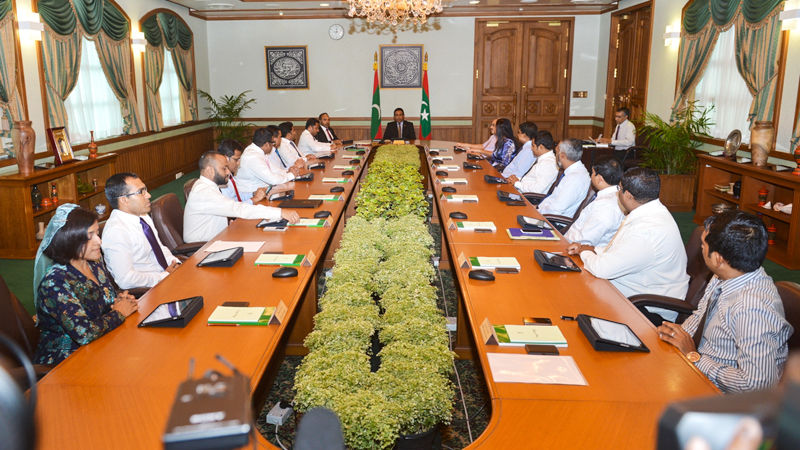European parliament calls for sanctions on top Maldives officials
The European parliament has adopted a resolution calling on the EU and member states “to introduce restrictive measures in the form of targeted sanctions to freeze the assets abroad of certain members of the Maldivian government and their leading supporters in the Maldivian business community, and to impose travel bans on them.”

17 Dec 2015, 09:00
The European parliament has adopted a resolution today calling for targeted sanctions against senior government officials and pro-government businessmen “in the face of continuing democratic backsliding and deterioration of the human rights situation in the Maldives.”
The non-binding resolution calls for the EU and member states “to introduce restrictive measures in the form of targeted sanctions to freeze the assets abroad of certain members of the Maldivian government and their leading supporters in the Maldivian business community, and to impose travel bans on them.”
The resolution also calls on the EU Commission and member states “to issue comprehensive warnings about the Maldives’ human rights record to tourists planning to go to the country” and asks the European External Action Service to monitor closely the human rights and political situation in the Maldives.
Europeans accounted for 42 percent of tourist arrivals this year. The Maldivian economy is largely dependent on the lucrative tourism industry.
Become a member
Get full access to our archive and personalise your experience.
Already a member?
Discussion
No comments yet. Be the first to share your thoughts!
No comments yet. Be the first to join the conversation!
Join the Conversation
Sign in to share your thoughts under an alias and take part in the discussion. Independent journalism thrives on open, respectful debate — your voice matters.




